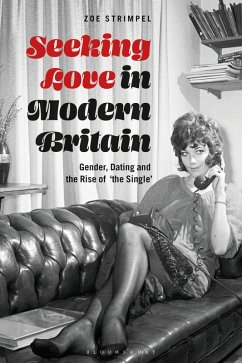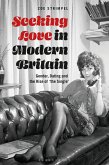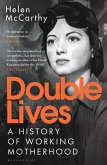Seeking Love in Modern Britain charts the emergence of the modern British single through an account of the dating industry that sprang up to serve men and women. It shows how - amid a period of unprecedented sexual and social change - 'the single' became a key unisex identity and lifestyle.
From around 1970, a growing, cottage-style matchmaking industry in Britain was offering the romantically solo a choice between computer dating firms, such as Dateline or Compudate, introduction agencies and the lonely hearts pages of Private Eye, Time Out and others. Zoe Strimpel reveals how this rapidly expanding landscape of services was catering to a new breed of single people, and how - by the late 1990s - singleness had become the culturally mainstream, wholly expected part of the romantic life cycle that it is today.
Refuting the widespread idea that the Internet invented modern dating, this book uses an eclectic and engaging range of first-person accounts and snapshots from the time to show that the story of contemporary romance, mediated courtship and singleness began in a time long before Tinder.
From around 1970, a growing, cottage-style matchmaking industry in Britain was offering the romantically solo a choice between computer dating firms, such as Dateline or Compudate, introduction agencies and the lonely hearts pages of Private Eye, Time Out and others. Zoe Strimpel reveals how this rapidly expanding landscape of services was catering to a new breed of single people, and how - by the late 1990s - singleness had become the culturally mainstream, wholly expected part of the romantic life cycle that it is today.
Refuting the widespread idea that the Internet invented modern dating, this book uses an eclectic and engaging range of first-person accounts and snapshots from the time to show that the story of contemporary romance, mediated courtship and singleness began in a time long before Tinder.









